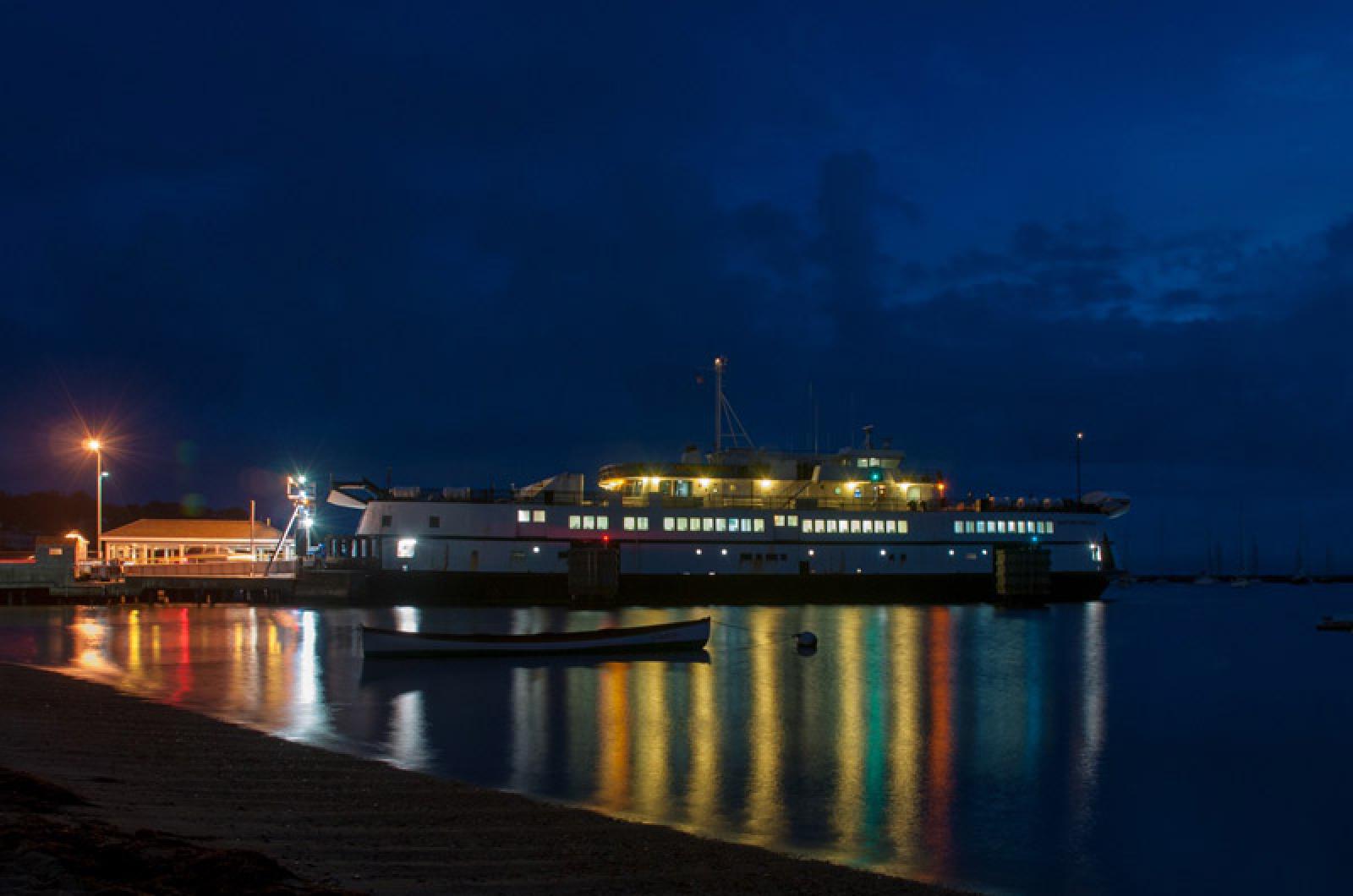A group of Woods Hole residents is challenging state approval of the Steamship Authority terminal reconstruction project in the village, a move that could delay the project.
The massive, $60 million overhaul of the Woods Hole terminal has been in the planning stages for the past two years by the quasi-public boat line chartered to serve the two Islands. Among other things, the multi-phase plan calls for relocating and rebuilding the main terminal building, rebuilding and realigning the three ferry slips and relocating administrative offices to Palmer avenue in Falmouth.
In early September the state Department of Environmental Protection (DEP) issued a preliminary license for the project under Chapter 91, the state waterways act.
Three weeks later a group of 13 Woods Hole residents represented by an attorney requested an adjudicatory hearing before the DEP, starting an appeal at the administrative law level.
The residents want the license to roll back ferry traffic to 2010 levels, and are asking for the DEP license to stipulate public access to the waterfront, including fishing, boating and a public walking path.
A conference with a hearing officer has been set for next month to determine whether the dispute can be resolved through mediation.
At their monthly meeting Tuesday on Nantucket, SSA governors met in executive session to discuss the matter.
Boat line general manager Wayne Lamson told the Gazette Wednesday that it remains unclear whether the appeal will delay the terminal project, set to get under way this winter and expected to take three years to complete.
“That’s hard to say, how long this process might take, and whether or not we might be able to reach a settlement through mediation,” Mr. Lamson said, speaking to the Gazette by telephone. “The phases have been designed so that a certain amount of work can get done in each off season. If we lose a month or two in that particular phase, that could throw off the whole schedule.” He added: “Any delay is going to increase the cost. If the first phase gets delayed, there’s a domino effect. It just makes the other phases more expensive to complete.”
Mr. Lamson said regulating traffic levels does not fall within the DEP licensing process, and he said public access is a matter of practicality.
“This would include such things as fishing and boating, which we don’t allow at any of the terminals,” Mr. Lamson said. “People have access to the terminal like any member of the public, but in terms of walking out on walkways, and mooring in the slips, that’s not allowed. It’s not compatible with our operations.”
Vineyard SSA governor Marc Hanover said all the objections were raised earlier in the DEP licensing process, and the agency rejected them.
“It’s a blip in the road,” he said of the appeal. “I think it’s highly unlikely they will succeed.”
Mr. Hanover said the boat line senior managers have met with the neighbors repeatedly over the past two years and addressed the complaints by making changes to ferry schedules, truck staging, and the design of the new terminal.
“Unfortunately, they don’t want the Steamship Authority to be there,” he said. “They don’t want the trucks. It’s like people who buy next to the airport and complain about the noise.”
In other business on Nantucket Tuesday, SSA governors agreed to adopt minor changes in the ferry schedules for next spring, summer, and fall. They approved a plan to shift some boats to different routes, and shift service to slightly lengthen some segments of the season.
The biggest change is switching the routes of the ferry Nantucket with the ferry Woods Hole next summer.
Launched in June, the Woods Hole is the newest member of the fleet, a combination freight, car and passenger ferry. The ferry has always been planned to operate mostly on the Nantucket route.
Mr. Lamson said the summer switch would have no effect on traffic to the Vineyard.
“In terms of its overall freight deck capacity, it would be about the same,” he said. “There aren’t any additional trips.”
SSA governors also got a first look at a draft $95 million operating budget for the coming year. Overall expenses are projected to increase, amid the rising cost of payroll, pension, health care, depreciation and fuel. But revenues are projected to outpace expenses, and no rate increases are expected next year.
The budget will come before the board for approval at the October meeting on the Vineyard, set for Oct. 18.






Comments (11)
Comments
Comment policy »